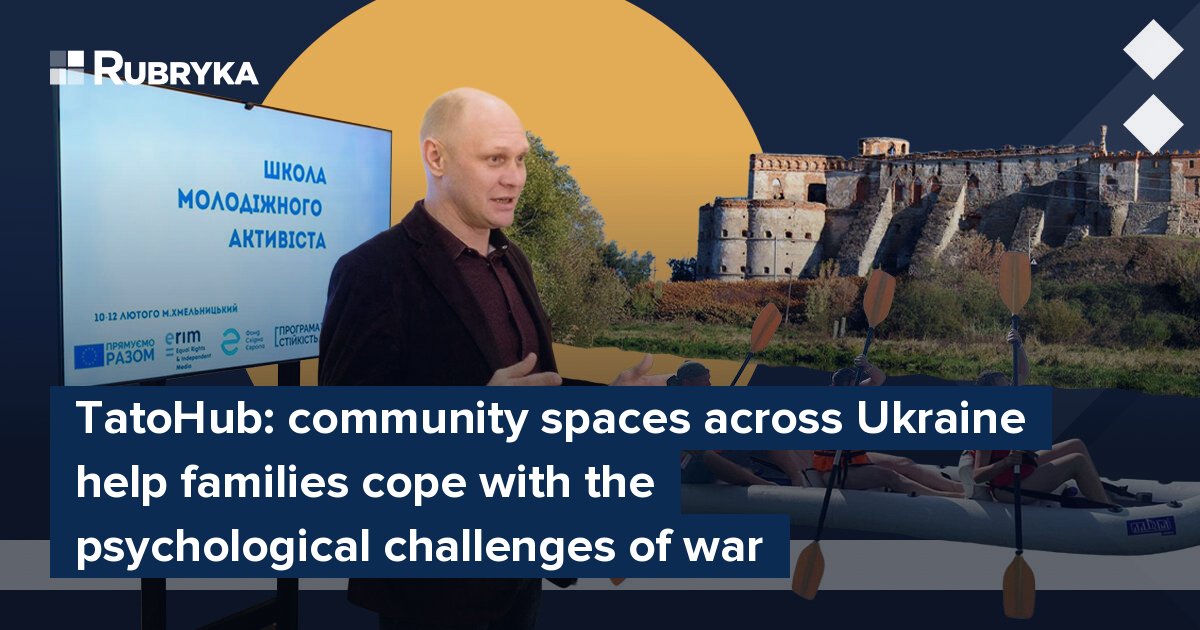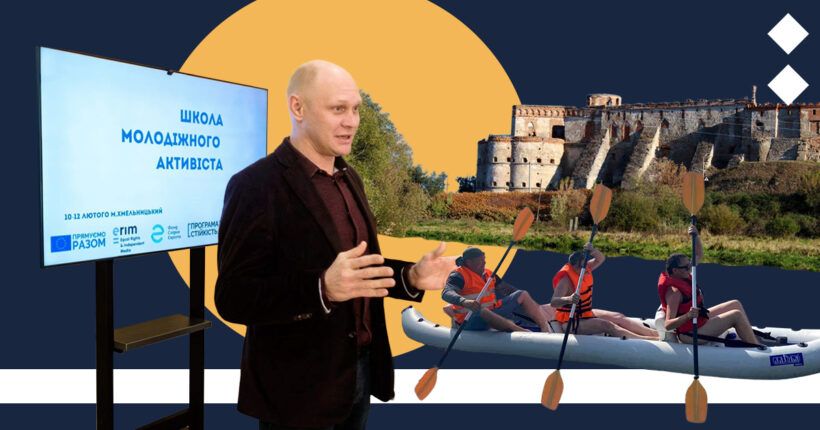
What is the problem?
Today, Ukrainian fathers feel a huge physical and psychological burden — someone went to the front to defend the motherland and sees their family only via the phone screen; displaced fathers are forced to solve many problems — from finding a means of livelihood to arranging a new home. Someone reunited with a family that returned from a year and a half evacuation and cannot find an understanding with them. Someone became a volunteer and now has almost no time to communicate with children. In addition, each of these men is just a person with experiences and worries about his relatives and the future.
What is the solution?
To help children, their parents, and guardians reduce their level of stress, cope with emotional pressure and take care of health, safety, and development of healthy family relations during the war, NGO Fishermen's Club of Ukraine – UA Fishing Club implements the TATOhub project.
The all-Ukrainian project TatoHub is stable and long-term — since 2020, it has supported and united men and implemented and developed the culture of responsible parenthood in Ukraine. In addition, today, during the war, it helps, teaches, evacuates, and in every way supports Ukrainians who suffered from the war while developing the communities in which it was launched.
How does it work?
TatoHub is a community of conscious dads
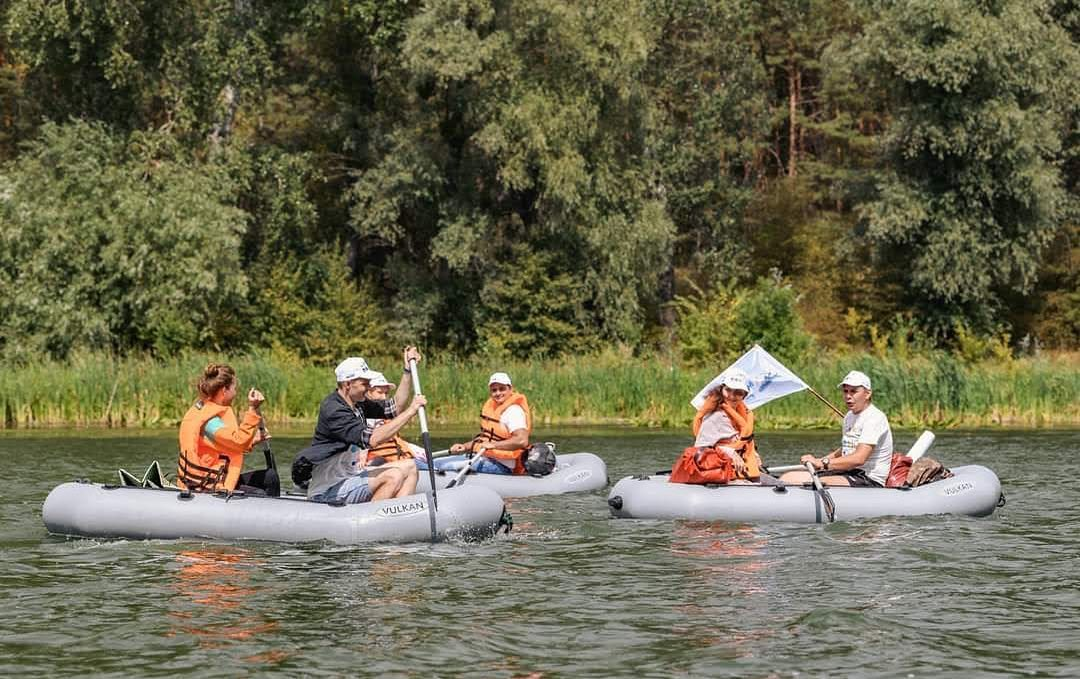
Rafting in Sviatohirsk is one of pre-war memories of one of the families. Donetsk region, 2020
Three years ago, TatoHub was created as an offline and online space to actively involve dads in raising children. It aimed to improve the communication skills of dads who may be emotionally disconnected from their children or spouse.
"In 2018, we founded the first children's fishing school. When children started coming to us, I noticed the following thing — most of those who brought children to classes were mothers. Children who became interested in fishing precisely because of their father's hobby did not feel their father's support," says Yaroslav Boyko, the head of the NGO Fishermen's Club of Ukraine – UA Fishing Club.
In those days, the term 'responsible fatherhood' was unfamiliar to many people, but the team started working in this direction. They underwent several seminars on masculinity, equal division of responsibilities between spouses in the family, and several workshops on psychology. This is how the TatoHub project, aimed at men who will be involved in raising children through various activities, gradually matured.
The model of creating parents' clubs is not new. In Europe, a similar approach is used, and the involvement of dads in spending meaningful leisure time together and ensuring the comprehensive development of the child, as well as promoting partnership relations in the family. That is why the work of TatoHubs in certain communities of Ukraine has become so important, as they are clubs for dads where they can communicate, exchange experiences, receive advice from specialists in various fields, and spend quality time with their children.
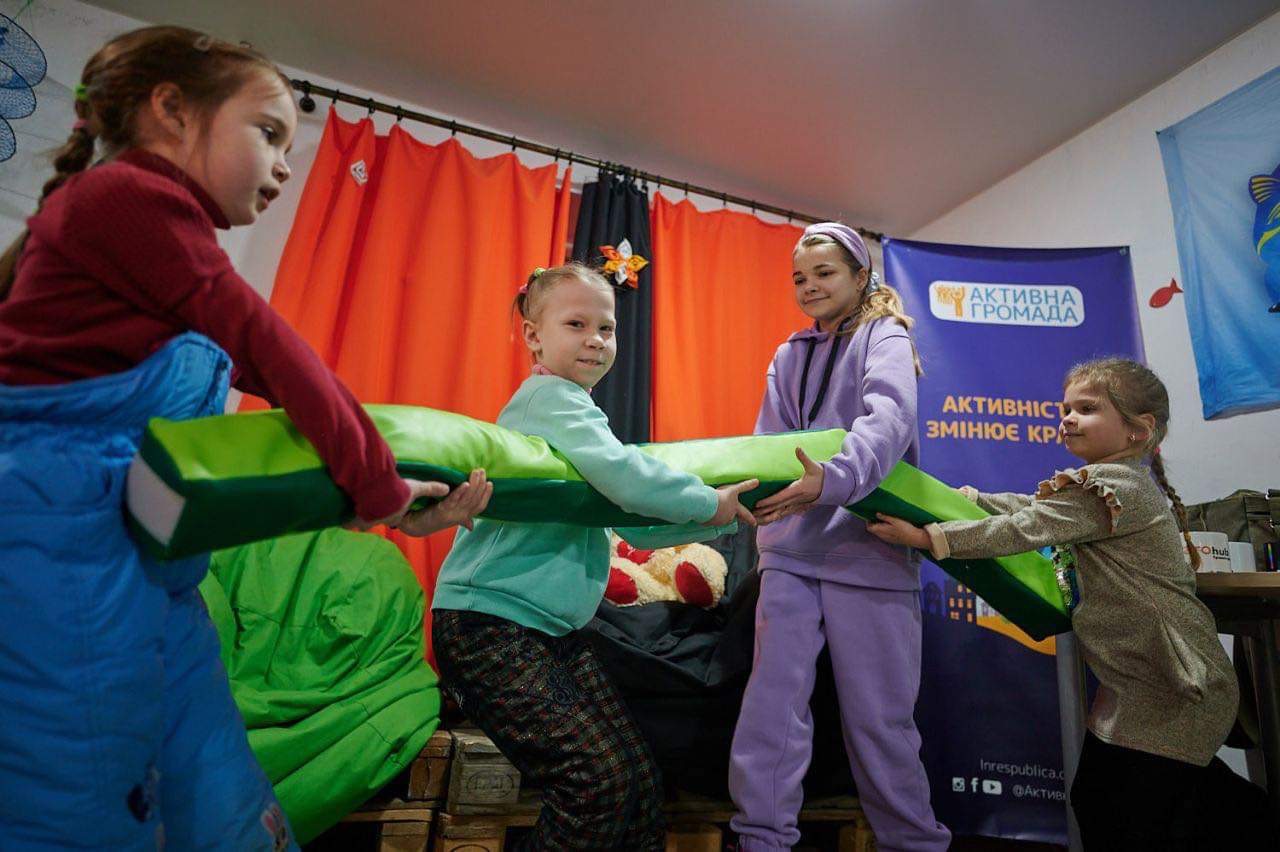
Children's play therapy was one of the activities in Kramatorsk TatoHub.
The TatoHub project started in Kramatorsk, the Donetsk region, and gradually spread throughout Ukraine. Before the war, ten TatoHubs functioned in Ukrainian communities. In these clubs, fishing competitions, rafting, hiking, master classes, various classes, trainings on raising children, and meetings with specialists were organized free of charge for children and their parents. The organizers noted that common interests and communication with dads positively affected children, contributed to their social and emotional development, and brought positive results for dads themselves and families as a whole. In addition, they gave an additional impetus to the development of communities. After all, communities are, first of all, people.
TatoHubs and war
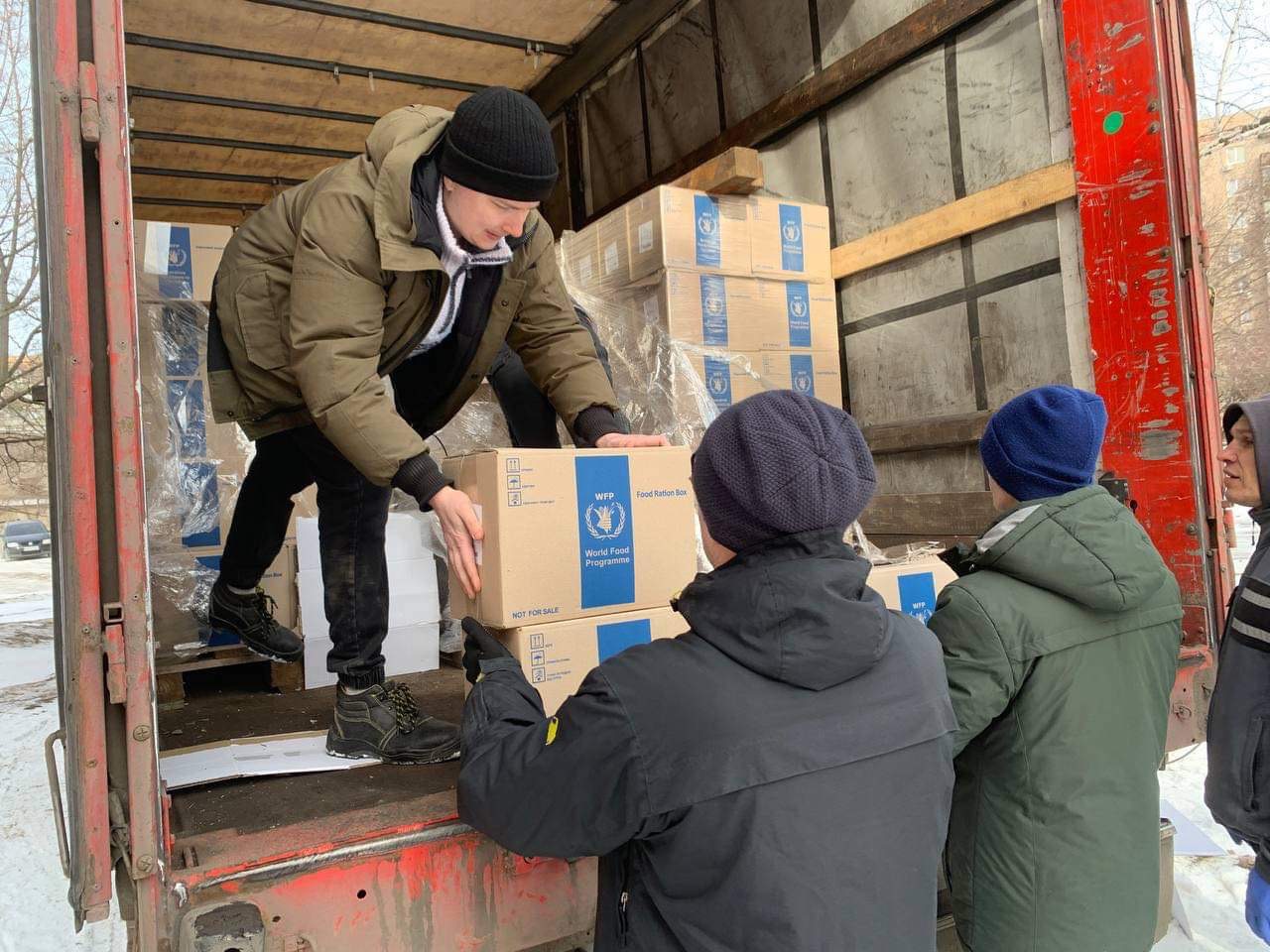
The hub's volunteers unload humanitarian aid for residents of Kramatorsk.
Some TatoHubs stopped their work at the beginning of Russia's full-scale invasion in February 2022. Due to hostilities and occupation, clubs in the Luhansk region, Myrnohrad, Nova Kakhovka, and Berdyansk, were closed. Instead, the Kramatorsk hub has not stopped its work for a single day — it became the main coordination center for humanitarian aid issues and evacuation of the population of the Donetsk region.
On the very first day of the Russian armed aggression, Boyko created a general chat for the coordination of NGOs, activists, charitable foundations, representatives of the executive power of the territorial communities of the Donetsk region, and the Donetsk regional state administration. Already on February 26, 2022, the first evacuation trains left the Donetsk region for the west of Ukraine. In the opposite direction, in the same compartment cars, the employees of the NGO sent hundreds of cubes of humanitarian aid to the Donetsk region.
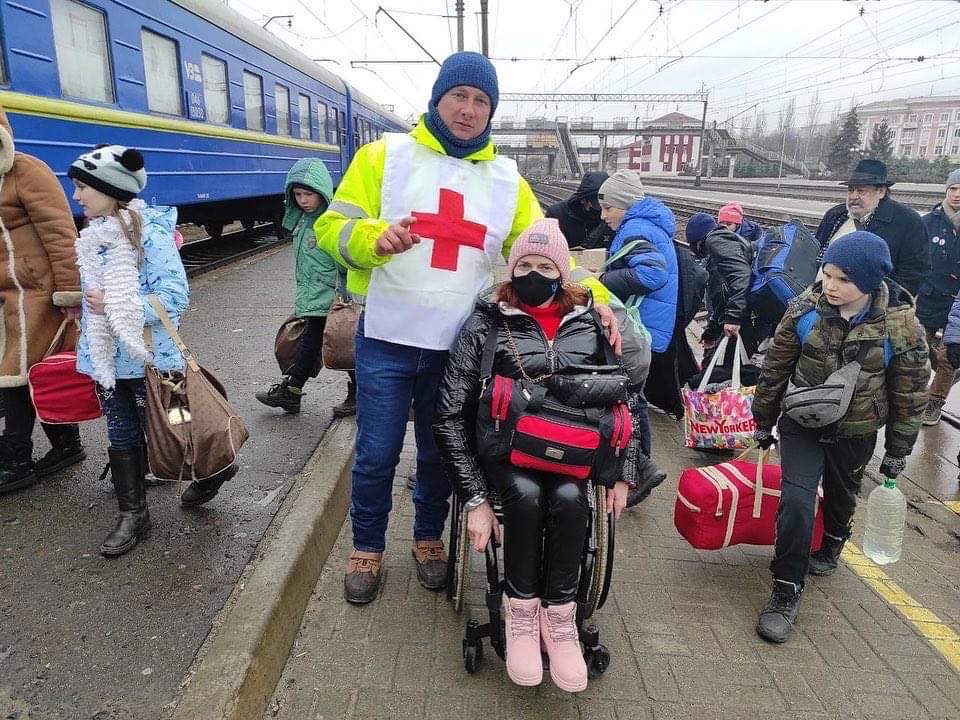
Evacuation from Kramatorsk railway station. February 2022
At the same time, the organization made another rather bold decision — to expand the TatoHub project to those regions where the displaced people were heading en masse because, at that time, there was a heavy load on local aid services, and communities needed high-quality support. According to Boyko, it was not easy to do this — it was necessary to act very quickly. However, already in May, with the help of the Springboard to Equality project, implemented by the United Nations Population Fund in Ukraine — UNFPA Ukraine in partnership with the Office of the Vice Prime Minister for European and Euro-Atlantic Integration with the financial support of the Embassy of Sweden in Kyiv, three new TatoHubs — started their work in Uzhgorod, Khmelnytskyi, and Ternopil.
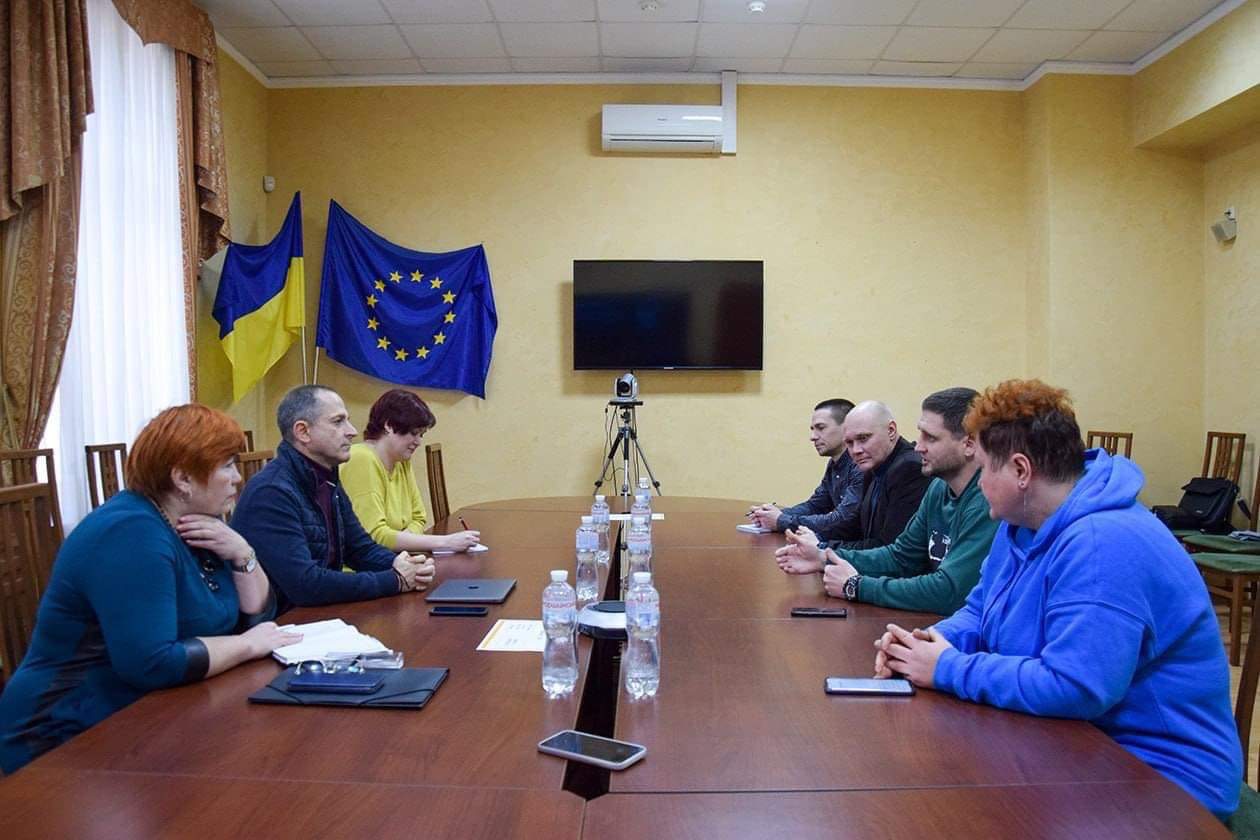
The signing of the Memorandum between the NGO Fishermen's Club of Ukraine, the charity fund Posmishka UA and the Sumy military regional administration for the distribution of 5,000 electric heaters and kettles to communities
"We realized that it is challenging for people who come for evacuation to orient themselves in a new place," says Boyko. "There was a need for an institution to help people leaving the Donetsk region. Our TatoHubs were able to become such an institution."
A hub for each community
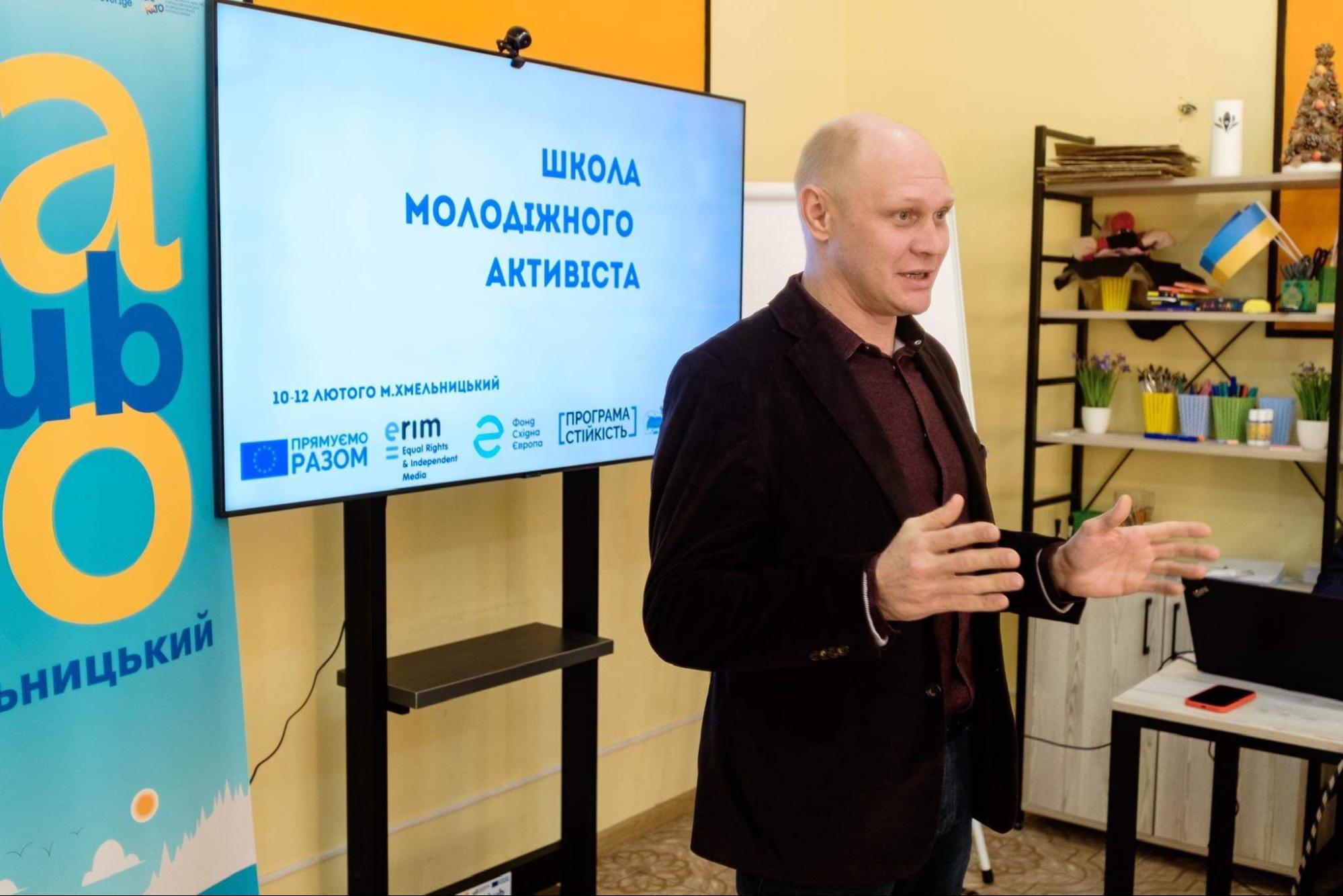
Yaroslav Boyko opens a three-day youth activist school for the Khmelnytskyi Youth Council
During the year and a half of the war, TatoHub provided over a million online and offline crisis consultations. They helped evacuate more than 380,000 people. In the communities of Donetsk, Khmelnytskyi, Ternopil, and Zakarpattia regions, on the basis of the TatoHub centers opened during the war, multifaceted work with young people and volunteers is constantly conducted. In addition, legal, medical, and psychological assistance is provided to community residents and displaced persons. In particular, at the end of July, 26,553 IDP families received psychosocial support in these clubs.
Currently, 11 TatoHub branches are operating in Ukraine. Each is unique and has its main work areas — the focus depends on the coordinators. Some specialize in master classes, and some in psychological training. For example, TatoHub in Uzhhorod is a library hub, and TatoHub in Ternopil specializes in robotics.
"Men are our target audience"
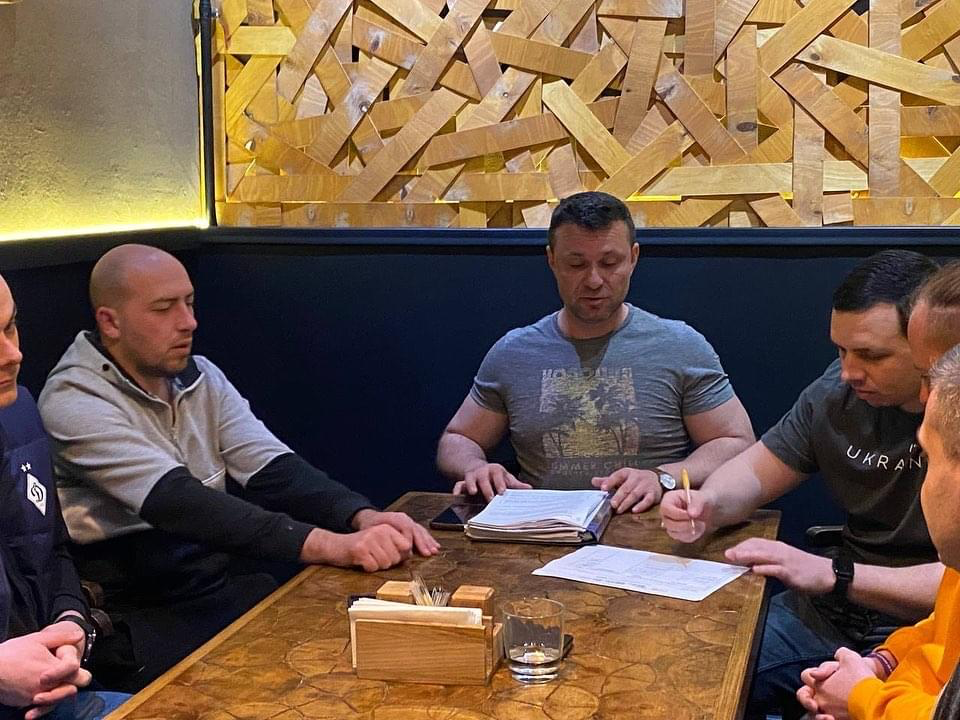
Classes at the TurboTato school at TatoHub in Ternopil
The NGO Fishermen's Club of Ukraine — UA Fishing Club believes men need the same support as women. Men are the organization's target audience: both civilians and military.
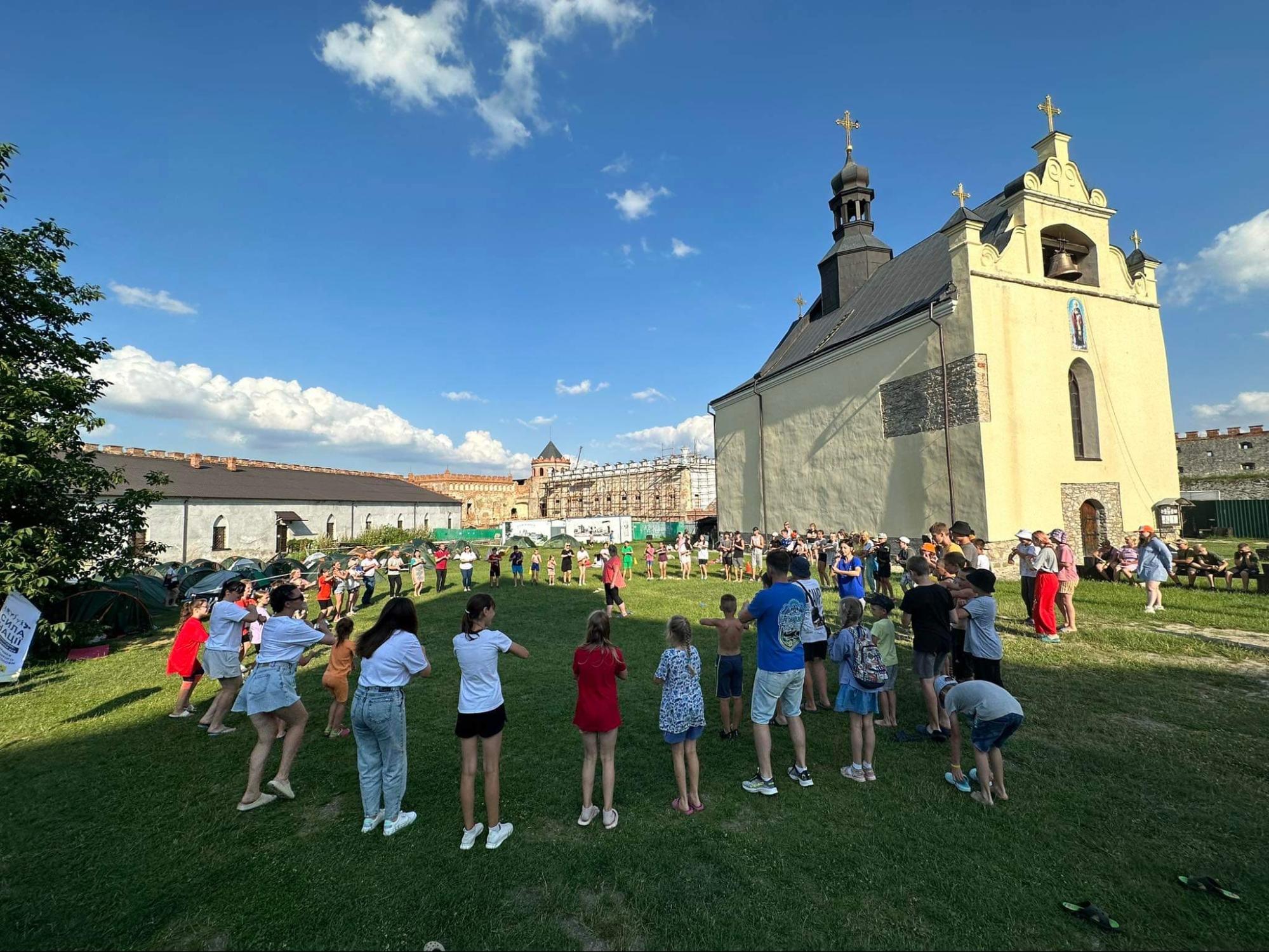
Opening of a tent camp for families of IDPs in the village of Medzhibizh, Khmelnytskyi region. This five-day event was carried out thanks to the joint efforts of the NGO Fishermen's Club of Ukraine with partners from the NGO Strength of the Nation and Khmelnytskyi City Council
"I founded the Fishermen's Club of Ukraine to unite fishermen, not only to have fun and catch fish. We wanted to cover up real problems — poaching, free access to water bodies, and children's education — because fishing develops children's motor skills and intelligence well and positively affects their psycho-emotional state," Boyko shares with Rubryka. The NGO's goals were rather small and short-term, but more and more often at the events, the team noticed that people asked to solve problems unrelated to fishing. For example, community members who returned from the anti-terrorist operation (ATO) in the east of Ukraine sought rehabilitation assistance. The NGO's partners from the Union of Donbas ATO Veterans said: "We can't drag veterans to psychological counseling. Is it possible to somehow adapt it to fishing?" This is how the program Rehabilitation of ATO Veterans with the Help of Fishing and Tourism appeared. According to Boyko, since 2019, it has already proven itself well, and now the NGO plans to implement it in all their hubs.
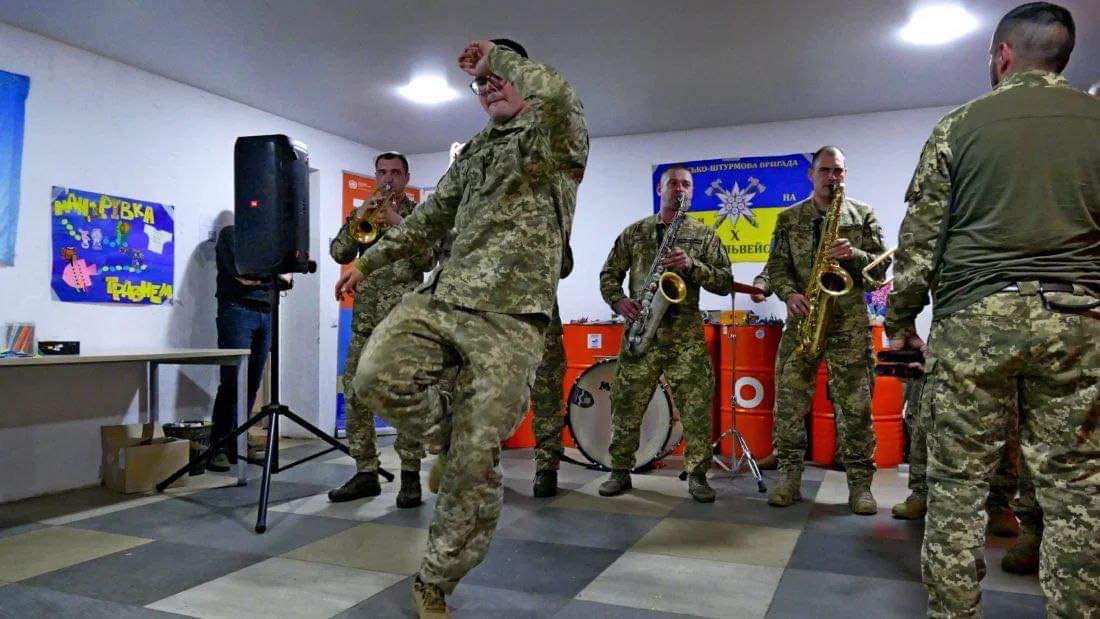
Concert program for children from the 10th separate amphibious assault brigade to the Day of the Armed Forces of Ukraine at TatoHub in Kramatorsk
TatoHub — the space of responsible men is another purely male direction. The all-Ukrainian parenting school project is designed to help dads practice skills and actions that will help them become more responsible parents and partners.
Also, the emphasis of the activities of TatoHubs is on the partnership format of relations. This, according to project psychologist Vasyl Kuptsov, is when both spouses are equal. That is, they can replace each other, perform household chores, raise children together, listen, hear, and support each other, and find common solutions, and, of course, dads can do all the same things as moms. Meanwhile, children of dads who are actively involved in their lives have higher achievement in school and university, greater career success, better cognitive and social skills, higher self-esteem, fewer behavioral problems, and increased resilience to stress. Dads in such couples have better physical and mental health, greater life satisfaction, better relationships with their wives, and even better sex life as a couple.
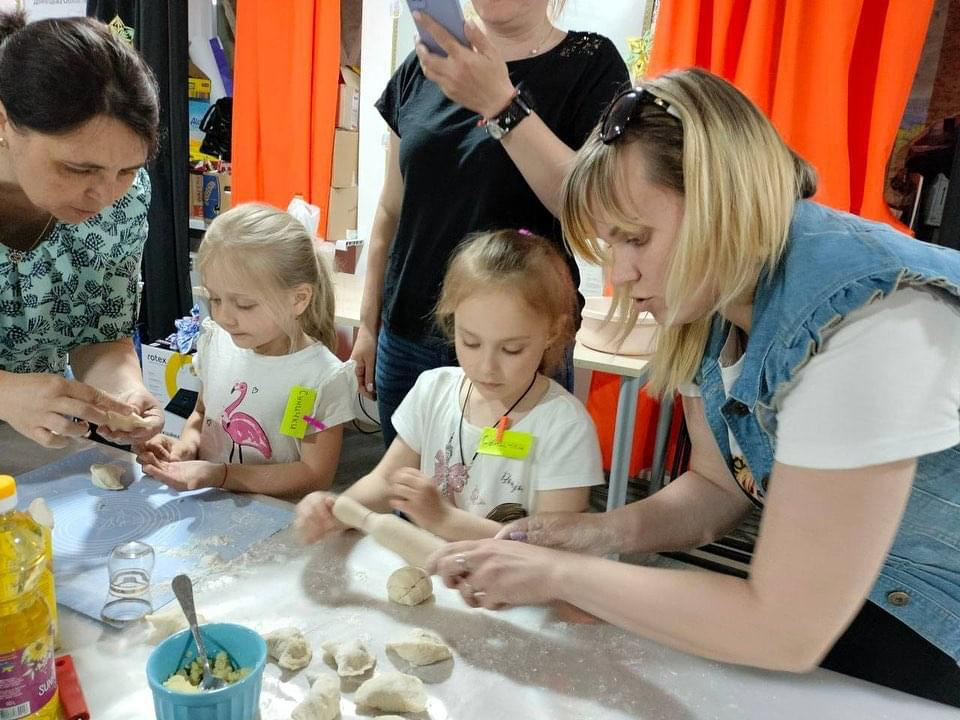
Family cooking competition in TatoHub, Kramatorsk
According to Kuptsov, today, civilian and military men turn to the psychologists of TatoHubs with the following requests:
Emotional health and stress. This is especially true for men, who often hide their emotions and find it difficult to talk about them.
- Interpersonal relations. Relationships with partners, family, friends, and colleagues are a source of concern for many people these days. During times of war, men may also face unique challenges in building and maintaining healthy relationships.
- Self-esteem and identity. Problems related to status, roles, self-esteem, and the search for one's own identity. Men may feel as if they are under certain social expectations or demands.
- Correct use of emotions. Men want to understand how to express their feelings more effectively and not support traditional masculine stereotypes.
- Development of communication and interaction skills. Some men experience difficulties in establishing and maintaining interpersonal relationships due to insufficient communication skills.
- Crises and overcoming difficulties. Divorce, loss of job, rehabilitation problems, or other serious events that can affect the psychological state — with all this, the psychologists of TatoHubs work fruitfully.
Fishing is not only about fish
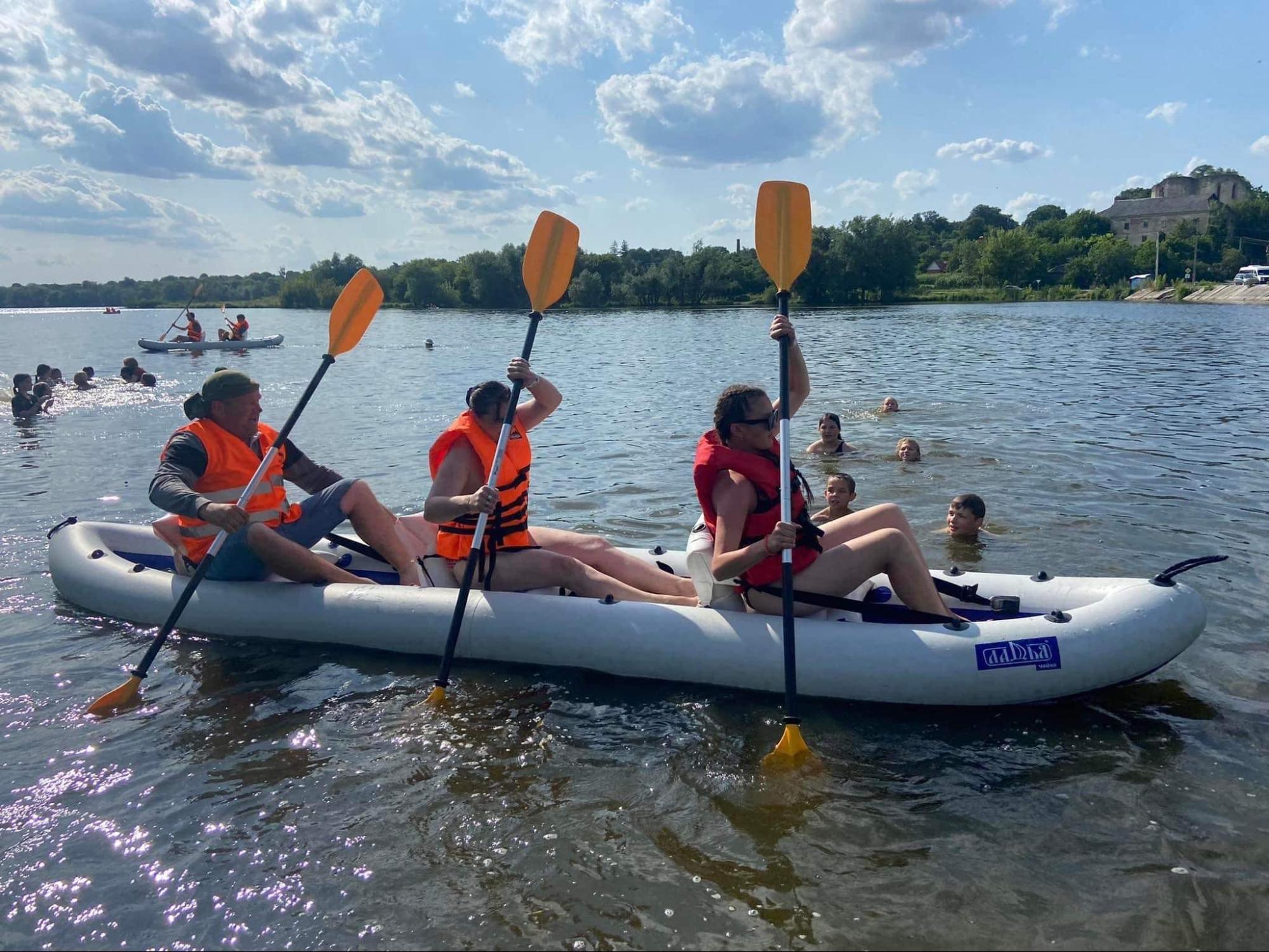
Family rowing during a tent camp for IDP families in the village of Medzhibizh, Khmelnytskyi region
It is worth noting that many psychological consultations occur precisely during events that the Fishing Club of Ukraine organizes for its members outdoors — this is another highlight of the project.
The founder of the organization, Boyko, says: "Fishing, hiking and our other forays into nature are not just entertainment, but effective tools for rehabilitating military personnel, working with children and people with disabilities. Because of the emotional prism that arises during our events, we can give a person help and information that will go much better than in the room's four walls. We have already ensured that there are cases when the work of psychologists on the bank of the river is much more effective than in the office."
Psychological work outdoors has many advantages, confirms project psychologist Kuptsov. It indicates the following aspects:
- Relaxation and connection with nature. Being outside can promote relaxation and reduce stress. Such psychological sessions can help clients experience greater harmony and peace.
- Finding inspiration. Nature can stimulate creativity and help in thinking about complex issues.
- Space for openness. The absence of walls can facilitate more open and honest communication between the psychologist and the client.
- Psychosocial construct: simultaneous work with some directions (psychological support, socialization, communication, psychoeducation, and others).
However, there are limitations:
- Working in an open space can violate the confidentiality of the sessions, as it can be inconvenient to ensure absolute privacy, so the psychologist's activities are conducted in a group work format without deep immersion in personal stories.
- Weather conditions, nature sounds, and other factors of external influence can interfere with clients' psychological work and concentration.
- Not all clients can feel physically comfortable outdoors, especially if there are restrictions on movement or the need for special conditions.
- After all, some clients may feel that the work of a psychologist outdoors is less professional compared to working in a comfortable office environment.
Therefore, the psychologist notes that an individual approach plays a significant role here. The work of a psychologist outdoors is effective for people who respond positively to the natural environment and want to feel a connection with nature. However, it is essential to carefully consider all the nuances before choosing such an approach and to ensure proper conditions for providing adequate psychological support.
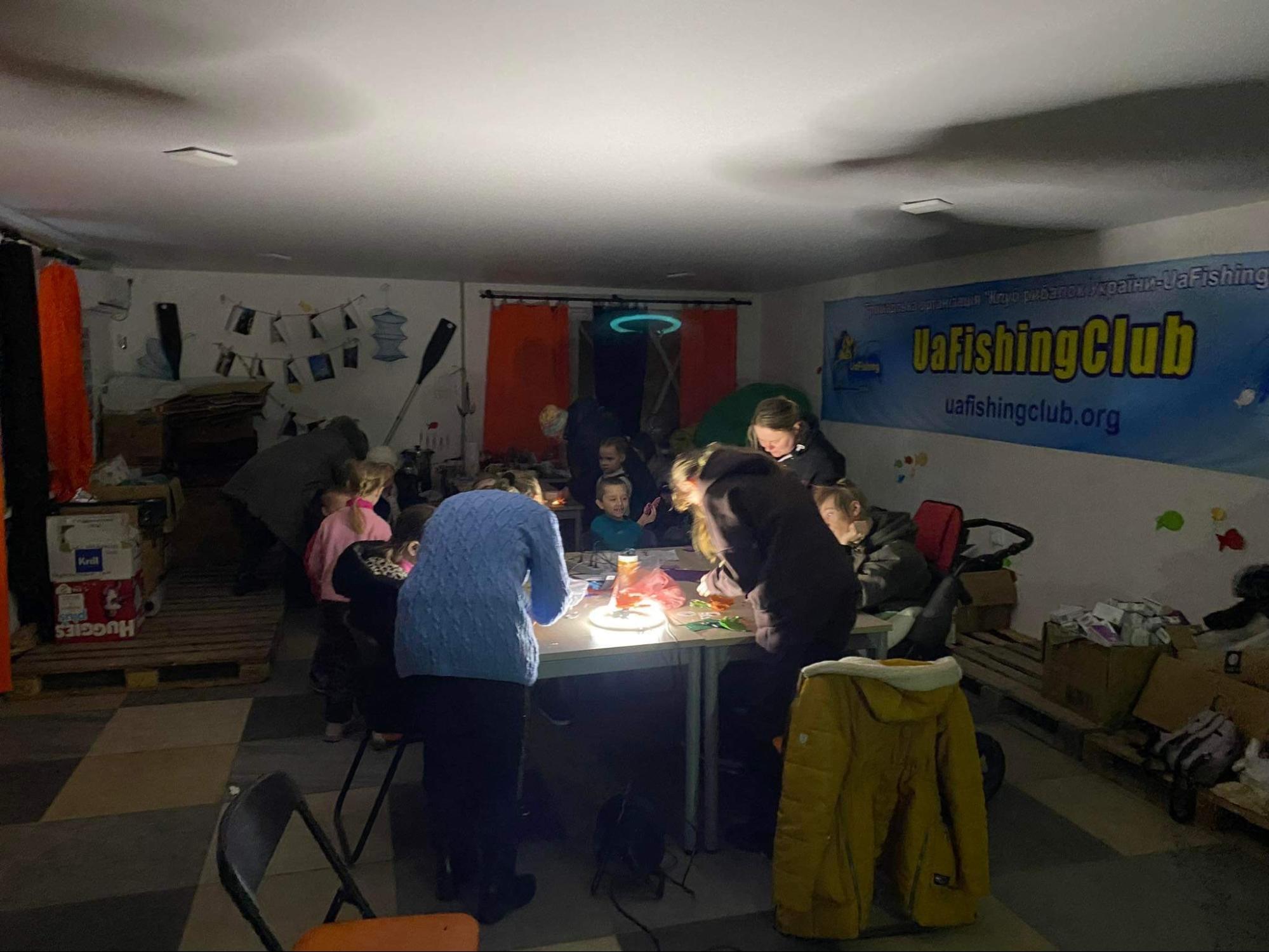
Conducting an art therapy class for children during a blackout at TatoHub in Kramatorsk
Does it really work?
Psychologist Kuptsov cites examples of visitors to TatoHubs, who, with the help of project specialists, were able to cope with anxiety due to Russian missile attacks, with the shock of losing a loved one, with conflicts in marriage exacerbated by the war. By daring to consult a psychologist, people were able to find ways to cope with their problems and gradually return to everyday life.
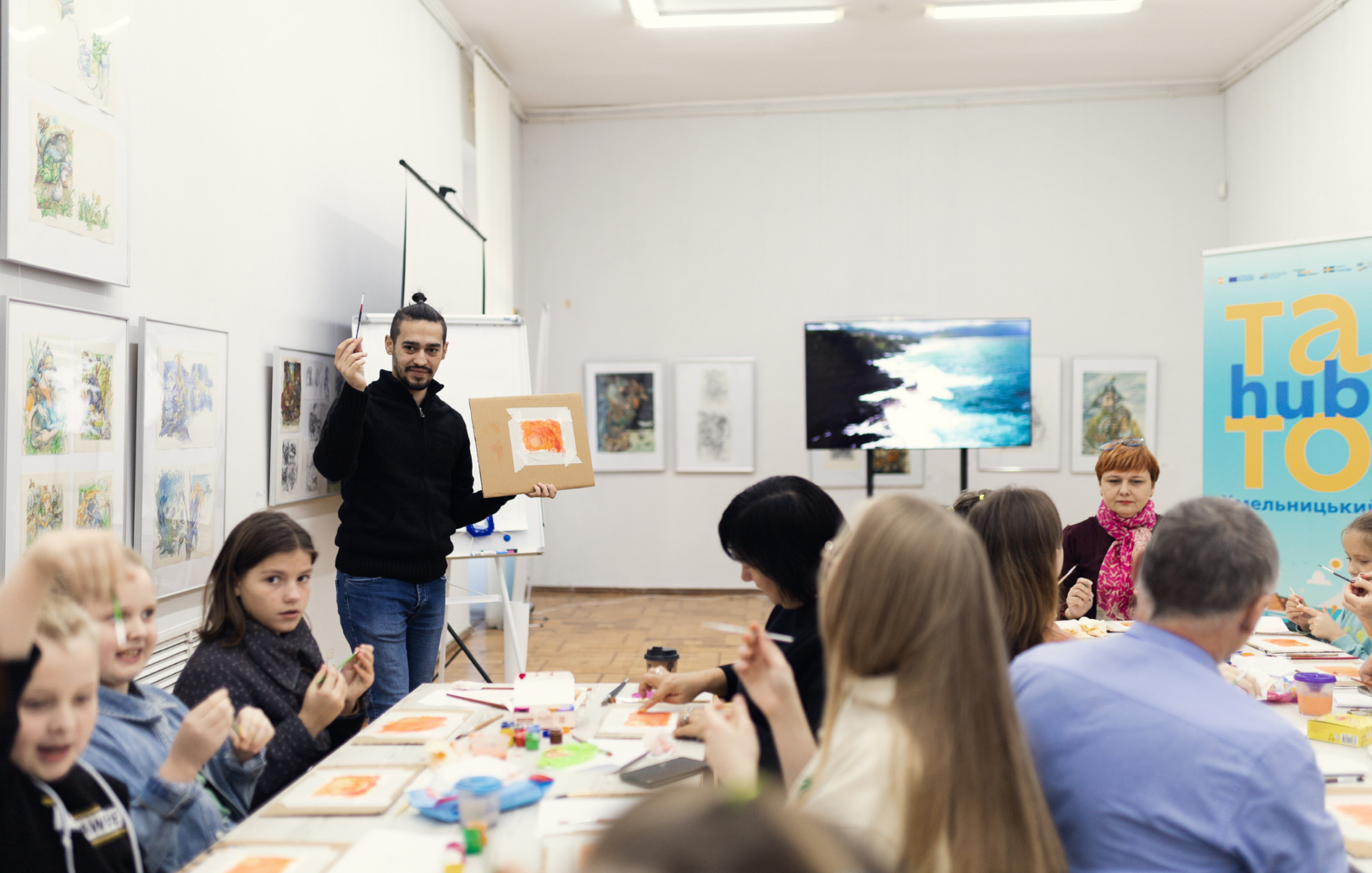
Vasyl Kuptsov conducts an art therapy class for children and their parents in Khmelnytskyi
"I was struck by the situation when a regular client became very emotional during group art therapy work and did not hide her emotions. She allowed herself to show her feelings in the group, opened up, and talked about her experiences. In turn, the group members did not give advice but simply supported her and shared their feelings and sensations," Kuptsov recalls. "This story showed me how much people trust us. They perceive our hub as a safe space where they can be sincere, first of all, with themselves."
Even more useful solutions!
The activities of the NGO Fishermen's Club of Ukraine are not limited to the TatoHub project. The organization has dozens of implemented projects to support the institution of the family, military personnel, and IDPs. From a small group of three avid fishermen, the organization has become a strong team with over a hundred members whose work covers environmental protection, civil society development, and support of youth initiatives. In addition, the NGO organizes many different events and festivals, which raise awareness about the importance of environmental protection, create pleasant memories, and unite people.
Currently, the organization is working on another important project for Ukraine dedicated to demining the coastal zones of Donetsk, Kharkiv, and Zaporizhzhia regions.
"It is necessary to start working with this as early as possible," the head of the NGO Boyko is confident. "Coastal areas are hazardous for people today. We must understand that no matter how much we tell people about the danger of mines, they will still go out into nature in their free time and take their children. The coast is such a thing that if we don't deal with its demining today, tomorrow, all these mines will quickly sink into the soil, and then they won't even be visible. We, as fishermen, know well all these places where families choose to go, and we are sure that we can implement this project and prevent the death of many people."
The organization is currently negotiating this project with the Wildlife Fund and the EU, particularly with the Swedish Embassy, and hopes that donors will support it.


